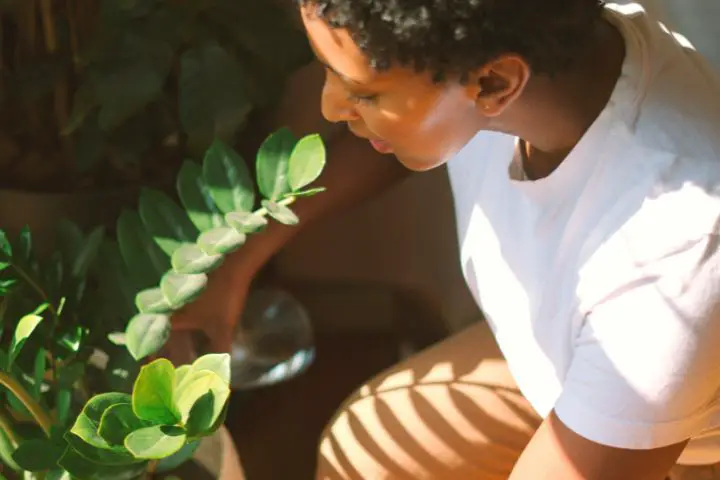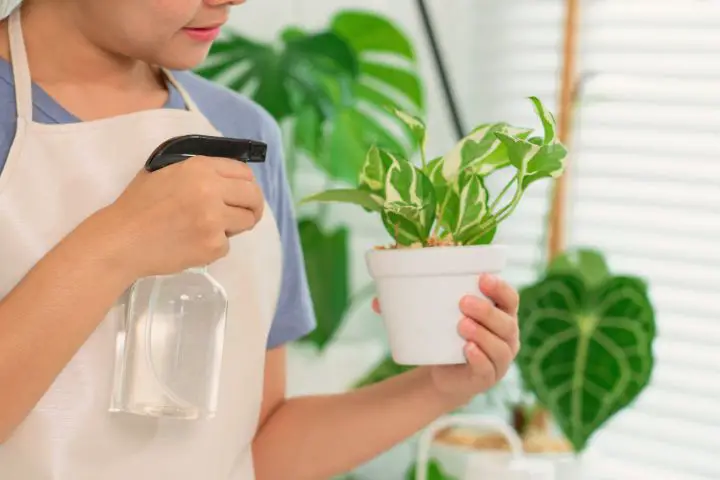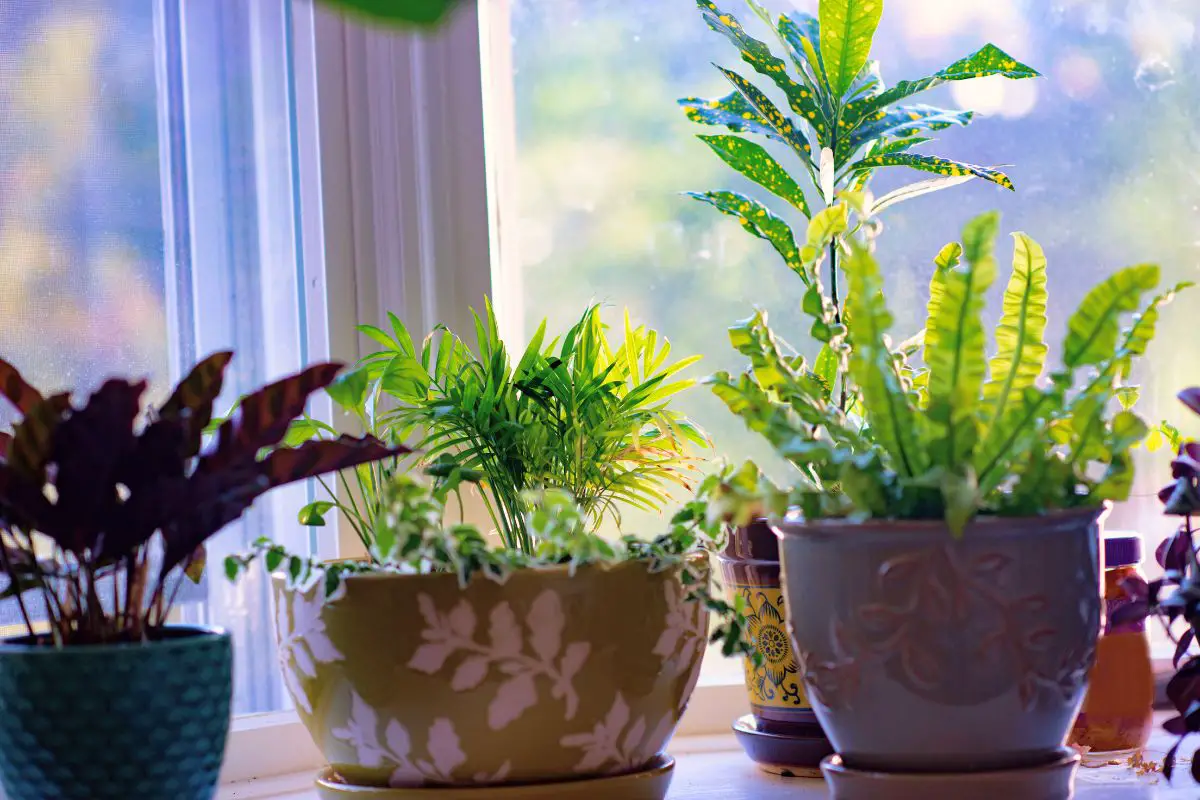How To Keep Indoor Plants Alive In Winter – Keep Them Happy in the Cold Months!
Winter usually means snow on the pavement and in the trees. This is a beautiful sight, but what about your green friends? Most don’t like the winter, brr!
There are various ways to care for your indoor plants in the cold weather to keep them surviving until the bright sun comes back.
While we usually just grab a warm blanket, plants require a little more!
Related Articles: Best Fast Growing Indoor Plants and Plants That Grow Dormant in Winter
First Things First: Do Some Research
Before I list the different things you can do to keep your plant happy during winter, it would help to dig a little deeper into finding out what species your indoor plant is. This changes their care needs in winter, as some may need more attention and some may need less.
The tips below will be a general guideline; however, the idea is to copy the plant’s habitat as much as you can.
Caring for Your Indoor Plants
The following tips can help you keep your indoor plants happy.

1. Don’t Water as Much as Usual
Unless your home is a boiler, the soil won’t dry out as fast in the winter, so your plants will not need much water. If you used to water your houseplants every 7 days in warmer months, cut back to every 10 days or so. This is especially important with your dormant plants.
How often you water the plants in winter also depends on the type of plant you have, soil, pot sizes, how hot it is in your home, and how humid it is. I would observe how fast the soil dries out and deduce the new schedule from there.
2. Decrease the Amount of Water
Your indoor plants should be watered 25% less in the colder months. A tip is to have a big watering can for summer and a smaller one for winter so you don’t keep the soil too wet. You should also use room temperature water, as your plants are resting and cannot handle the shock of cold water. I know you wouldn’t appreciate cold water on a cold day!
It would help if you also watched the saucer of your plant to ensure that water does not collect. If your plant is submerged in water, it can cause root rot.
3. You Will Have to Move Your Plants for More Light
The winter months mean shorter, darker days, which do not leave much sunlight for your plants. You would have to move your indoor plants to another location where they will receive more light.
If you put them close to the window, ensure they are not too close to the cold glass or exposed to cold winds. If the light is only coming from one side, you would have to rotate your plants to ensure all sides get adequate light.
Remember to remove your plants from the window sills in winter!

4. Don’t Use Fertilizer
Your indoor plants use wintertime to rest and relax. Just like us, they probably think it’s too cold to do anything! So, you should avoid using fertilizer during winter. It’s better to wait until the warmer months when the days are longer.
Your plants also prefer to be repotted in summer. Avoid repotting unless it is completely necessary. Cuttings can also damage your roots rather than help them, as they grow slowly in winter.
5. Temperature
You will see that most of your indoor plants love warm, tropical, humid conditions. These are not the conditions that come with winter, though! You might think of turning up the heat in your home, but this will not solve your problem.
You should avoid temperature extremes, such as placing your plants close to a heater or leaving them in line with cold winds from windows or doorways. When adjusting your heat for your comfort, don’t forget your plants’ needs and whether they will be affected.
Try to keep them a few inches away from the exterior windows and move your plants away if you have frost on the windows at night.
6. Humidity

Most indoor plants thrive on humidity; however, cold months reduce humidity by a lot. Your home may only have 5% to 10% humidity, whereas your plants need around 40% to 50%. Plants that do not get enough humidity often have brown leaf tips.
You can lightly mist your plants with room-temperature water or move them to high-humidity areas in your home, such as the bathroom or kitchen. You can also try the heater trick, where you put a bowl of water near the heater to add more moisture to the air.
Putting a tray of pebbles with water under the pot can also help the plants with humidity. However, you need to be careful to not allow the houseplant to sit in stagnant water.
7. Controlling Plant Pests
While most plants go dormant during winter, pests are still out and about! You have to regularly inspect your plants for signs of bugs. The sooner you find them, the sooner you can deal with them.
You can check your plants when watering. You can wash your plant leaves with 1 tsp mild liquid soap mixed with 1 liter of water. Using neem oil can also keep bugs off your plants. This is an inexpensive and organic way of keeping them pest-free.
Should I Clean My Plants in Winter?
Yes! Cleaning your plants in winter will keep them healthy and looking good. It will also keep them free of pests and allows you to check your plant for dead leaves and other signs of damage.

There are various methods you can use to clean your indoor plants:
- Indoor shower- This is the easiest way to clean your plants. You can put them in your shower and give them a gentle wash. The water must be lukewarm, and no soap is needed. Remember that a small amount of soil is washed out, so you must be careful if you have drainage issues.
- Misting- Succulent plants and cacti such as the pachypodium and certain bonsais are sensitive to the overwatering that will happen in a shower. Misting is the best option for these plants.
- Microfiber damp cloth- Large older plants are not easy to move, so that they can be wiped gently with a damp cloth. Hold the leaf from below to prevent tearing and breaking from the branch.
- A clean paintbrush- If you have an extra brush and have no idea what to do with it, here’s a cool hack! Using a brush to clean is good for hairy plants such as the African Violet and cacti with a few spines. Cleaning with a brush takes more time; however, you don’t have to do it often.
Frequently Asked Questions
Which indoor plants need more attention during winter?
Indoor plants include orchids, African violets, indoor cyclamen, and other flowering indoor Christmas plants. These plants need regular moisture and feeding, but always check the instructions for certain plants that may have specific feeds.
How can I make my foliage shine?
Over time, you may notice that your house plants look dull, even if they are cleaned regularly. This is normal; however, we all want our plants to shine and give a statement as soon as someone walks in.
If you can handle the smell, a neem oil spray is perfect for a leaf shine. Not only does it give your plants’ leaves the shine you want, but it also prevents the occurrence of pests.






